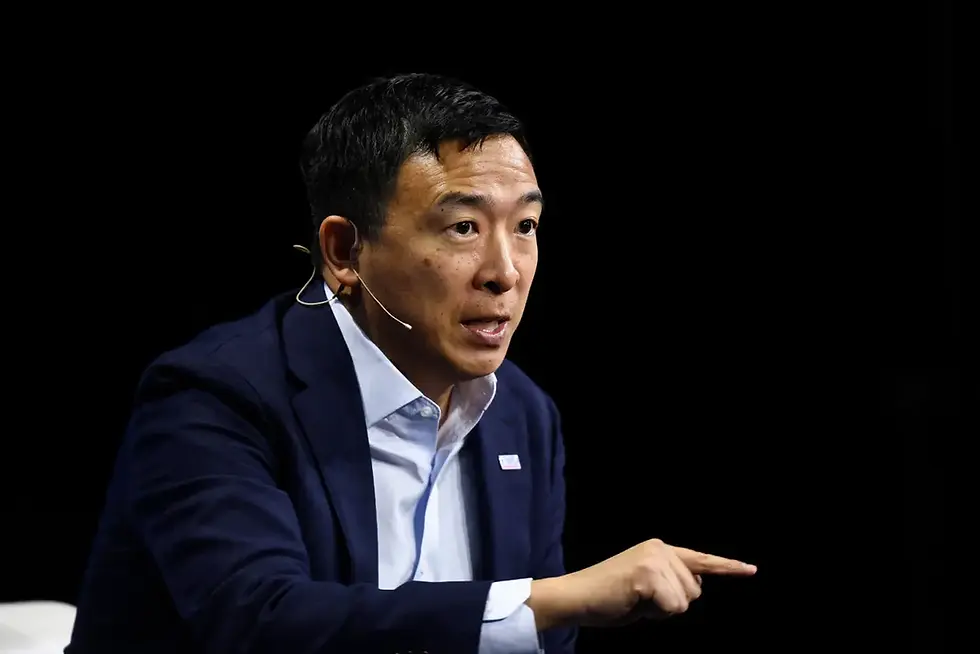Paris AI Summit 2025: Will AI Ethics and Global Cooperation Finally Become a Reality?
- Dr. Shahid Masood

- Feb 15, 2025
- 4 min read

The Paris AI Summit 2025, held on February 10-11, marked a critical milestone in the global discussion on artificial intelligence (AI) governance. Bringing together over 60 world governments, leading AI corporations, academics, and civil society representatives, the summit was dedicated to shaping a structured framework for AI development that balances innovation, ethics, and global stability.
The event led to the adoption of the Paris Declaration on AI Ethics and Global Cooperation, a landmark international commitment addressing the governance, safety, inclusivity, and sustainability of AI. Additionally, major investment pledges from various global stakeholders, especially France, signal a significant geopolitical shift in the AI race.
This article provides a comprehensive, in-depth analysis of the summit’s key discussions, outcomes, policy frameworks, economic implications, and future AI governance challenges. It contextualizes AI’s global trajectory, historical precedents, and the path forward for responsible AI development.
The Evolution of AI Governance: Past and Present
Historical AI Governance Efforts
The discussion around AI governance did not start in Paris. Over the years, various governments and institutions have attempted to regulate AI’s development to minimize risks while maximizing benefits. Below is a timeline of major international AI governance efforts:
Year | Initiative | Key Objectives | Outcome |
2018 | Canada-France AI Partnership | Ethical AI Development | Led to the Global Partnership on AI (GPAI) |
2020 | OECD AI Policy Observatory | AI Risk Frameworks | Established AI governance principles across 38 member states |
2021 | US National AI Initiative Act | AI Research & Development (R&D) Funding | Boosted US AI infrastructure and military applications |
2023 | Bletchley Park AI Safety Summit (UK) | AI Safety and Ethical Considerations | Highlighted risks of autonomous AI and deepfakes |
2024 | UN AI Advisory Body | International AI Regulations | Proposed global AI regulatory standards for transparency and accountability |
2025 | Paris AI Summit | Ethical AI, Sustainability, and Investment | Adoption of the Paris Declaration and AI safety strategies |
These efforts set the stage for Paris 2025, where global leaders sought to implement real policies rather than just broad guidelines.
The Paris Declaration: A Blueprint for Ethical AI
The Paris Declaration on AI Ethics and Global Cooperation is the most comprehensive international agreement on AI governance to date. It revolves around three primary objectives:
1. Ethical and Accountable AI Development
The declaration prioritizes AI safety and transparent development, calling for:
Bias-free AI models to prevent discrimination.
Mandatory AI transparency reports from tech firms.
Regulatory oversight on high-risk AI applications in healthcare, finance, and military domains.
Ethical AI research funding to balance AI's power with moral responsibility.
2. AI for Global Inclusion and Accessibility
The agreement emphasizes AI’s role in bridging the global digital divide by ensuring:
Investment in AI infrastructure for low-income nations.
AI literacy programs in developing countries.
Open-source AI models for public access, reducing corporate monopolization.
3. AI and Environmental Sustainability
AI’s energy consumption is a growing concern. The Paris Declaration focuses on:
Development of low-power AI algorithms.
Implementation of carbon-neutral AI data centers.
Using AI for climate modeling and disaster prevention.

Global Investment in AI: France’s €109 Billion Strategy
The Paris AI Summit 2025 witnessed one of the largest global AI investment pledges, particularly from France. With a €109 billion package, France aims to become Europe’s AI leader, competing with the US and China.
Investor | Investment (€ Billion) | Focus Area |
French Government | 30 | AI Infrastructure & R&D |
Brookfield (Canada) | 20 | AI Energy Solutions |
UAE Government | 50 | AI Data Centers in France |
Private AI Firms | 9 | Quantum Computing & AI Cybersecurity |
What This Means for the AI Race
France will challenge the US and China as an AI superpower.
Middle Eastern investors (UAE) are making a strategic shift toward AI infrastructure.
AI-Powered Smart Grids (Brookfield) will revolutionize energy distribution.
This investment signals a paradigm shift in global AI leadership, placing Europe at the forefront of AI innovation.
The AI Safety Report: Identifying Global AI Risks
A major outcome of the summit was the International AI Safety Report, developed by 96 AI experts from 30 nations. The report identifies AI's key threats:
1. Algorithmic Bias & Ethical Concerns
90% of AI systems have shown bias in decision-making (Harvard Study, 2024).
The report calls for compulsory fairness testing in AI models.
2. AI-Generated Disinformation
Deepfake content rose by 900% in 2024 (Cybersecurity Watchdog Report).
Governments will require mandatory labeling of AI-generated content.
3. Autonomous AI & Existential Risks
Self-learning AI models pose unpredictability risks.
The summit emphasized AI kill-switch mechanisms for autonomous systems.
The report serves as a blueprint for AI risk mitigation, ensuring human oversight in AI advancements.
Challenges & the Future of AI Regulation
Despite progressive steps, the AI regulatory landscape faces significant obstacles:
Key Challenges
Divergent National Policies – The US, EU, and China hold conflicting views on AI governance.
Corporate Resistance – AI firms oppose heavy regulations, fearing profit losses.
Geopolitical Rivalries – AI is central to global power struggles, hindering cooperation.
The Future of AI Governance
Paris Declaration could serve as the foundation for a global AI treaty.
Increased AI standardization is expected through the UN and OECD.
AI’s role in climate science, education, and public health will expand.
The Road Ahead for AI & Policy Innovations
The Paris AI Summit 2025 has set the stage for a new era of AI governance, focusing on ethical development, international collaboration, and sustainable AI practices. However, the road ahead remains complex, requiring ongoing negotiations and policy refinements.
To stay updated on cutting-edge AI advancements, follow the expert insights from Dr. Shahid Masood and the 1950.ai team. Their work provides deep research on AI governance, predictive intelligence, and emerging technologies shaping the future.




Link Slot Gacor Setiap Hari !
Kabar4d
Kabar4d
Kabar4d
This is a good step regarding regulation of AI and it's constructive use but there should also policies like certain financial restrictions for governments and organizations which don't comply with these global regulations. Otherwise these will be nothing but fancy summits.